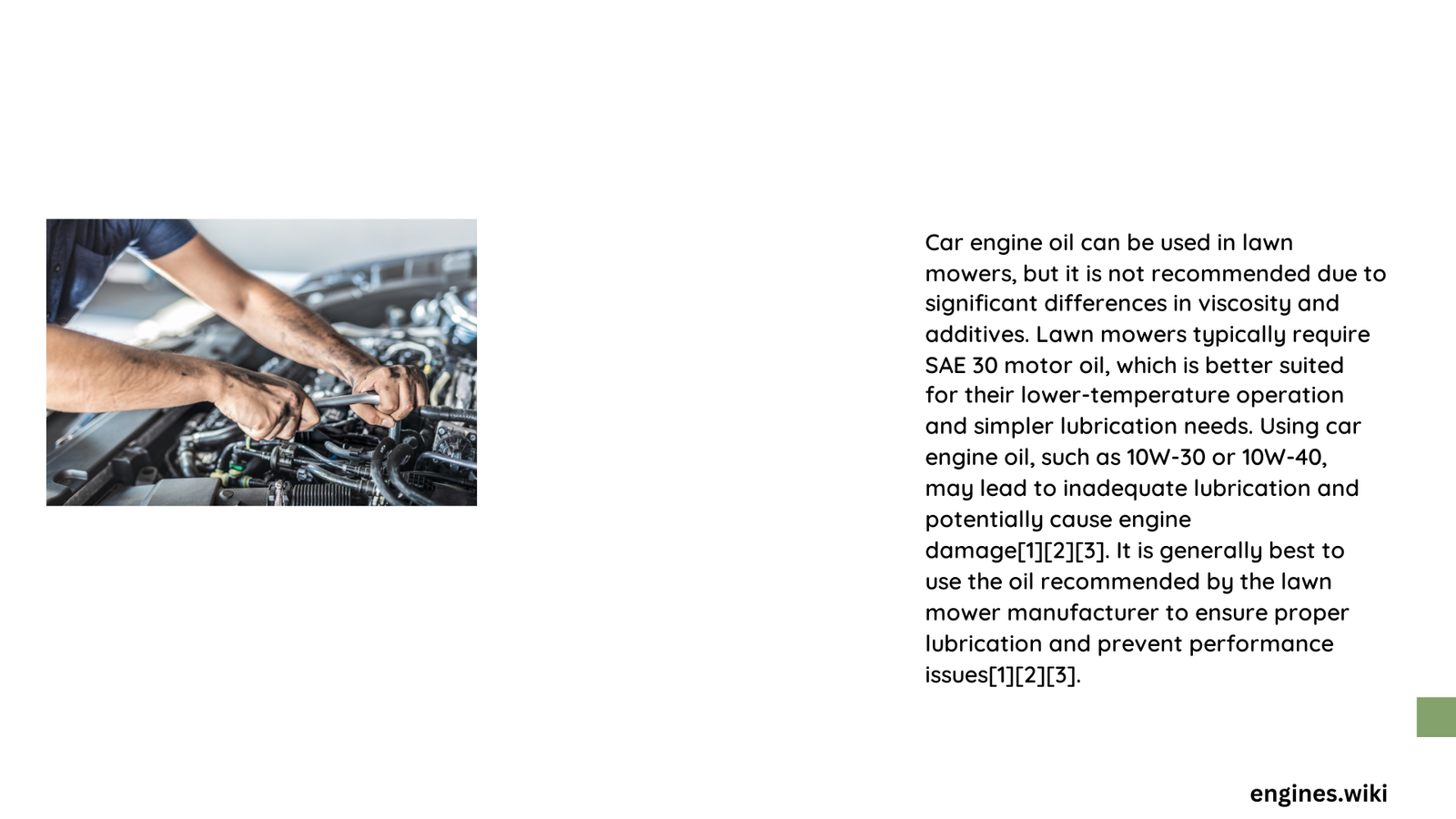Lawn mower owners often wonder about the interchangeability of engine oils, specifically whether car engine oil can be safely used in their lawn equipment. While it might seem convenient to use readily available car oil, the nuanced differences in engine design, operating temperatures, and lubrication requirements make this a complex decision that requires careful consideration of viscosity, manufacturer recommendations, and potential long-term engine impacts.
What Makes Lawn Mower Engines Different?
Lawn mower engines operate under unique conditions that distinguish them from automotive engines. These small, air-cooled engines typically run at lower temperatures and experience different mechanical stresses compared to car engines. Understanding these differences is crucial in determining oil compatibility.
Can Car Engine Oil Match Lawn Mower Oil Requirements?
| Oil Characteristic | Lawn Mower Oil | Car Engine Oil | Compatibility |
|---|---|---|---|
| Viscosity Rating | SAE 30 (typical) | 10W-30, 5W-30 | Partial |
| Temperature Range | Lower | Higher | Moderate |
| Additive Complexity | Minimal | Advanced | Low |
Viscosity Considerations
Most lawn mowers recommend SAE 30 single-grade oil, which provides consistent lubrication at the engine’s typical operating temperature. Car engine oils like 10W-30 or 5W-30 are multi-grade oils designed for broader temperature ranges and more complex engine environments.
Potential Risks of Using Car Engine Oil

When considering using car engine oil in a lawn mower, several critical risks emerge:
- Viscosity Mismatch
- Incorrect oil thickness can lead to inadequate lubrication
- Potential increased engine wear
-
Reduced overall engine performance
-
Additive Complications
- Car oils contain advanced detergents and additives
- These additives might not be beneficial for small lawn mower engines
- Potential chemical interactions with lawn mower engine components
Manufacturer Recommendations
What Do Experts Suggest?
- Lawn Mower Manufacturers: Strongly recommend using specific SAE 30 oil
- Automotive Oil Experts: Advise against universal oil application
- Mechanical Engineers: Emphasize engine-specific lubrication requirements
Practical Alternatives and Best Practices
When Can You Consider Car Engine Oil?
- If using high-quality multi-grade oil matching SAE 30 viscosity
- When no specialized lawn mower oil is available
- For temporary emergency lubrication
Recommended Oil Selection Criteria
- Check API service classification
- Verify viscosity matching SAE 30 requirements
- Consult lawn mower’s user manual
- Consider manufacturer-recommended oils
Technical Insights
Lawn mower engines typically operate at lower RPMs and temperatures compared to automotive engines. This means:
- Less complex lubrication needs
- Shorter oil change intervals
- Simpler engine design requiring specialized lubrication
Maintenance Tips
- Always prioritize manufacturer recommendations
- Perform regular oil checks
- Use clean, appropriate-grade oil
- Replace oil at recommended intervals
Final Technical Assessment
While car engine oil can be used in lawn mowers under specific circumstances, it’s not the ideal solution. The potential risks often outweigh the convenience of using readily available automotive oil.
Key Takeaway
Precision matters more than convenience when lubricating lawn mower engines.
